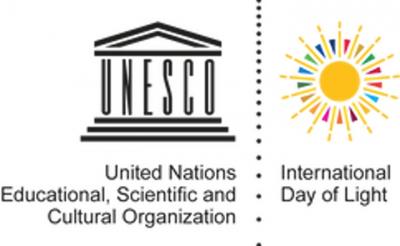
Sunday, 16 May 2021: Light plays a central role in people’s lives. On the most fundamental level, through photosynthesis, light is at the origin of life itself. The study of light has led to promising alternative energy sources, lifesaving medical advances in diagnostics technology and treatments, light-speed internet and many other discoveries that have revolutionized society and shaped our understanding of the universe.
The world renowned engineer and physicist, Theodore Maiman successfully fired the first laser on May 16, 1960, about six decades ago. Thus, May 16 has been earmarked by the United Nations Educational, Scientific and Cultural Organization, (UNESCO), as the International Day of Light to commemorate this date and as well celebrate the many ways that light impacts our world.
The International Day of Light celebrates the role light plays in science, art, culture, education, communications, energy, and in fields as diverse as medicine in relation to sustainable development. The celebration creates an avenue for many different sectors of society worldwide to participate in activities that demonstrate how science, technology, art and culture can help achieve the goals of UNESCO – building the foundation for peaceful societies.
Throughout history, humans have relied on light to learn about the world. Thousands of years after ancient civilizations constructed monuments aligning with the constellations, astronomers today are still looking into the same glowing night sky to learn more about our universe. The study of light also has given us telescopes and microscopes, X-ray machines, cameras, television screens and electric lights, transforming our society in extraordinary ways.
From the internet to smart phones, the technologies of light have impacted every aspect of our modern-day life. The development of fiber optics gave us the speed to stream high-definition media from the Internet, and the invention of LEDs brought us solar powered lamps efficient enough for children from areas without access to electric grids to study well into the night.
These technologies were developed through centuries of fundamental research on the properties of light – starting with Ibn Al-Haytham’s seminal work, Kitab al-Manazir (Book of Optics), published in 1015 and including Einstein’s work at the beginning of the 20th century, which changed the way we think about time and light.
The Director-General of UNESCO, Audrey Azoulay, enthused that "Light is life. Without light, life on our planet would not exist. In studying light through astrophysics, we delve into some of the deepest mysteries of the universe. In exploring optics and quantum optics, we plunge into the heart of matter itself.
“It is therefore unsurprising that, across cultures, light is a universal symbol of life, inclusion, and renewal. Light is associated with illumination, or spiritual awakening. Light is seen in opposition to darkness, which represents ignorance and intolerance”.
This day is therefore a call for humanity to strengthen scientific cooperation and harness the potential of light to foster peace and sustainable development.
It is in reverence of this exceptional asset called “light” that we celebrate every 16 May as the International Day of Light.
This year, as the world grapples with the COVID-19 pandemic, we hope that this event will also be an opportunity to shed light on unprecedented global challenges to build the foundation for peaceful societies.




















